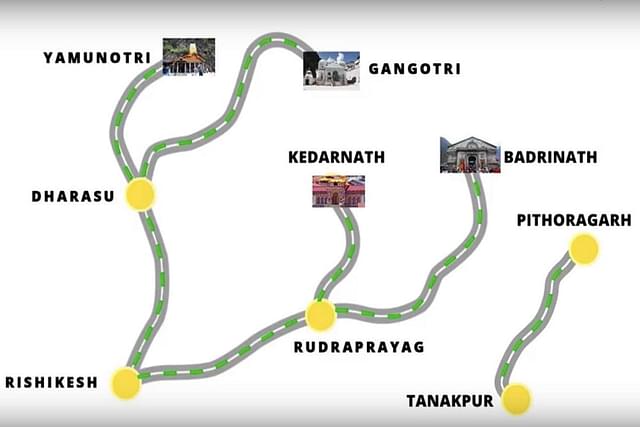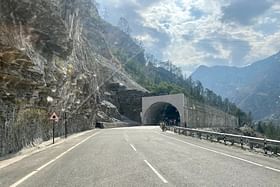The Centre’s strategic ‘Char Dham Project’, in Uttarakhand, under which Silkyara tunnel is being developed, did not require an Environment Impact Assessment, the Rajya Sabha was informed on 6 December.
The 4.5-kilometre Silkyara tunnel project, was under public gaze recently, after 41 workers got trapped for 17 days as landslide caused a portion of the tunnel to cave-in. It was after extensive efforts led by the National Disaster Management Authority (NDMA) that on 28 November evening, rescue personnel managed to breach the rocks that had collapsed around the workers, and evacuate them.
Preparation of Environment Impact Assessment (EIA) and EMP (Environment Management Plan) is an integral part of the detailed project report as per the scope for all projects under implementation with NHAI, in accordance with guidelines issued by Ministry of Environment, Forest and Climate Change as applicable.
Further, the Environment Ministry through its notification dated 22 August 2013 has mandated prior environment clearance for expansion of national highways greater than 100 km involving additional right of way or land acquisition greater than 40 metre on existing alignments and 60 metre on re-alignments require.
Thus, even though the Char Dham project — a road-widening exercise, totalling about 825 km — the project did not require any environment clearance as it was being developed in smaller parcels of 53 projects, each with a length of less than 100 km.
“Each project is independent, having distinct start and end points which are important places on these Highways. There was no requirement for Environment Impact Assessment (EIA) for these projects as per abovementioned guidelines”, Union Minister for Road Transport and Highways Nitin Gadkari said in Rajya Sabha in response to a question from Rashtriya Janata Dal MP, A D Singh.
The Project
The Rs 12,000 crore Char Dham project envisages all-weather road connectivity to four revered Hindu pilgrimage sites in the Himalayas — Kedarnath, Badrinath, Yamunotri and Gangotri, besides creating roads of strategic importance for faster movement of troops and military equipment to the border with China.

It comprises widening and developing 825 km of National Highways leading to the Char Dham spots — Yamunotri Dham, Gangotri Dham, Kedarnath Dham, Badrinath Dham and part of route leading to Kailash Mansarovar yatra.
Laying the foundation stone in December 2016, Prime Minister Narendra Modi described the project as a tribute to those who lost their lives during flash floods in the state.
The government has set the December 2024 deadline for completing the road connectivity programme. According to the status of the project, out of 825 km, about 601 km has been completed.


